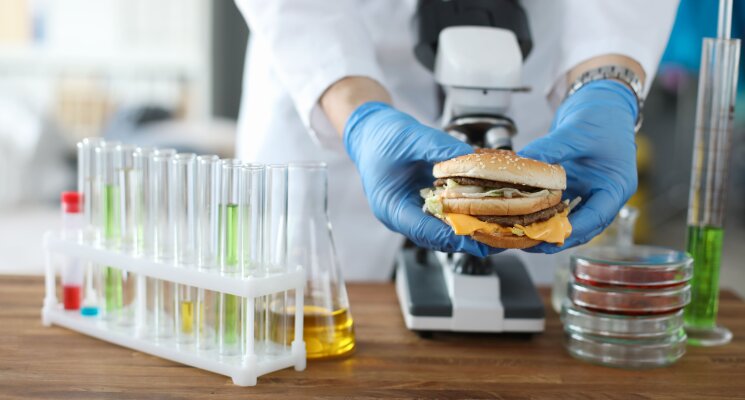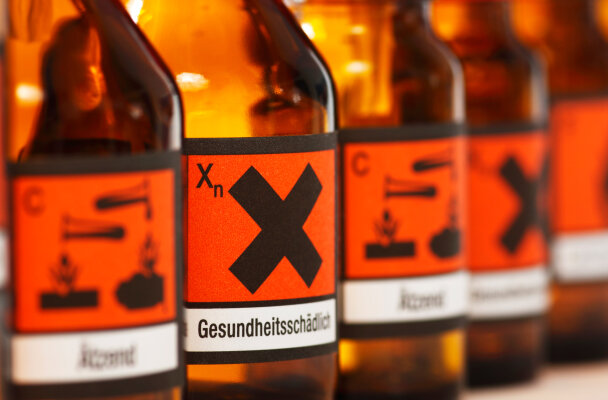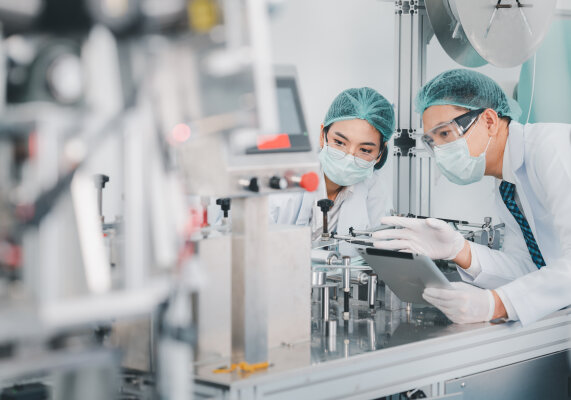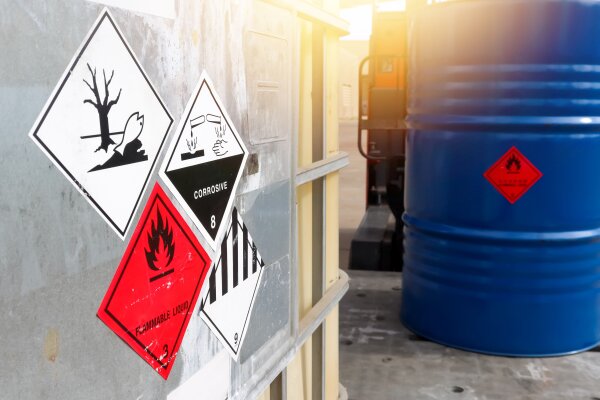The fat content of food: Analyzed quickly and accurately by innovative laboratory methods

Determining fat content in complex foods has long been an instrumental challenge. The analyses took a long time and were thus not suitable for industrial processes. Tanja Butt of Retsch GmbH and Ulf Sengutta of CEM GmbH have now been able to show that by further developing the instruments and cleverly combining the methods, it is possible to measure fat content quickly and accurately.
Long sample preparation makes standard methods uninteresting
Fat content is one of the most important control parameters in food monitoring, raw material control and quality control of food production. However, the analysis is not easy, as the standard analytical methods require very time-consuming sample preparation. This means that the result is often only available after hours - a major obstacle for quality control in ongoing production.
In particular, complex food samples such as pizza, mettwurst, spring rolls or filled ravioli require effective comminution and intensive homogenization. However, since high-fat foods are also often sticky, this makes the comminution process much more difficult. Thus, the homogeneous state is reached only after a very long time.
In addition, the moisture in the sample interferes with the analysis result by NMR spectroscopy, so the water must be removed. However, drying processes in the drying oven lasting several hours considerably prolong the sample preparation another time and lead to the fact that the known methods are not usable under industrial standards.
Perfect homogeneity through optimized grinding tool
For the optimized and fast homogenization of the complex and fat-containing samples, Retsch GmbH has significantly further developed the Grindomix GM 200 and GM 300 knife mills. In the new mills, the samples are cut in the forward run and further homogenized in the reverse run by the impact of the blunt knife side on the samples.
For particularly difficult and sticky foods, the knife mill can also be used for cryogenic grinding processes. For this purpose, dry ice snow at a temperature of - 78 °C is added to the sample and mixed with it. Cooling causes the sample to become brittle, no longer sticky and easier to grind. For cryogenic grinding, particularly temperature-stable grinding containers made of stainless steel are available, which do not suffer any damage even under the low temperatures.
The degree of fineness can be optimally adjusted by varying the speed. With 10,000 revolutions per minute, most foods can be brought to the necessary fineness and homogeneity.
Water removal by microwaves
After successful and rapid homogenization, the food sample can be prepared for further analysis. Here, the removal of water is of particular importance. For this application, CEM GmbH succeeded in developing an effective dryer, the Smart 6, which can remove the water from the sample within two minutes by means of microwave drying. For this purpose, the sample to be dried is placed on a carrier material made of glass fibers and this is positioned on a built-in balance.
The microwave field sets the water molecules in the sample in motion and expels them particularly quickly due to the high energy. The temperature is constantly monitored by an internal sensor. This ensures that the sample material does not undergo any chemical changes. A particular advantage here is that the surface does not become encrusted, which is often a problem with conventional drying processes, and reduces the amount of water removed over time.
During water removal, the internal balance continuously registers the sample weight. As soon as this no longer changes, weight constancy is reached and no more water leaves the sample, microwave drying is automatically switched off. Due to the speed of the process, this drying method is now also suitable for process control issues.
NMR spectroscopy for fat determination
The precisely dried sample can then be tested for its fat content using nuclear magnetic resonance spectroscopy (NMR). This method is already established and has been used for dry foods such as cereals or nuts for some time. With successful and efficient sample drying, these methods can now also be used for moist foods.
For the measurement, the dried sample is measured in the Oracle module, the NMR spectrometer of CEM GmbH. The sample is excited by a magnetic field and high-frequency pulses and reacts with characteristic signals that can be assigned to the fat. This also rules out the possibility of accompanying substances such as preservatives or sugar falsifying the measurement signal. The signal is recorded by the instrument's internal detector and converted into the fat content by the instrument software. This means that personnel can be quickly trained and read off the results directly.
Optimum results through clever combination of methods
In order to combine the advantages of microwave drying and NMR analysis even more directly, CEM GmbH has developed the Oracle fat analyzer, a composite instrument that contains both the microwave drying module and the NMR spectrometer. The instrument thus represents a fast, efficient, calibration-free and universal method for fat determination.
In combination with the optimized knife mills from Retsch GmbH, perfectly homogenized sample material is also provided. Conclusion: The first investigations in the combination of the methods show that results are now available in minutes instead of hours. In addition, significantly reproducible results can be achieved due to the improved homogeneity - the standard deviation has been reduced by a factor of 10. Thus, nothing now stands in the way of accurate and rapid fat determination as a method of process control.
Do you have any comments on the topic or desired topics for further blog articles? Then don't hesitate to contact us. Use our contact form, call us (+49 30 209 657 900) or send us an email to info@medsolut.com.




